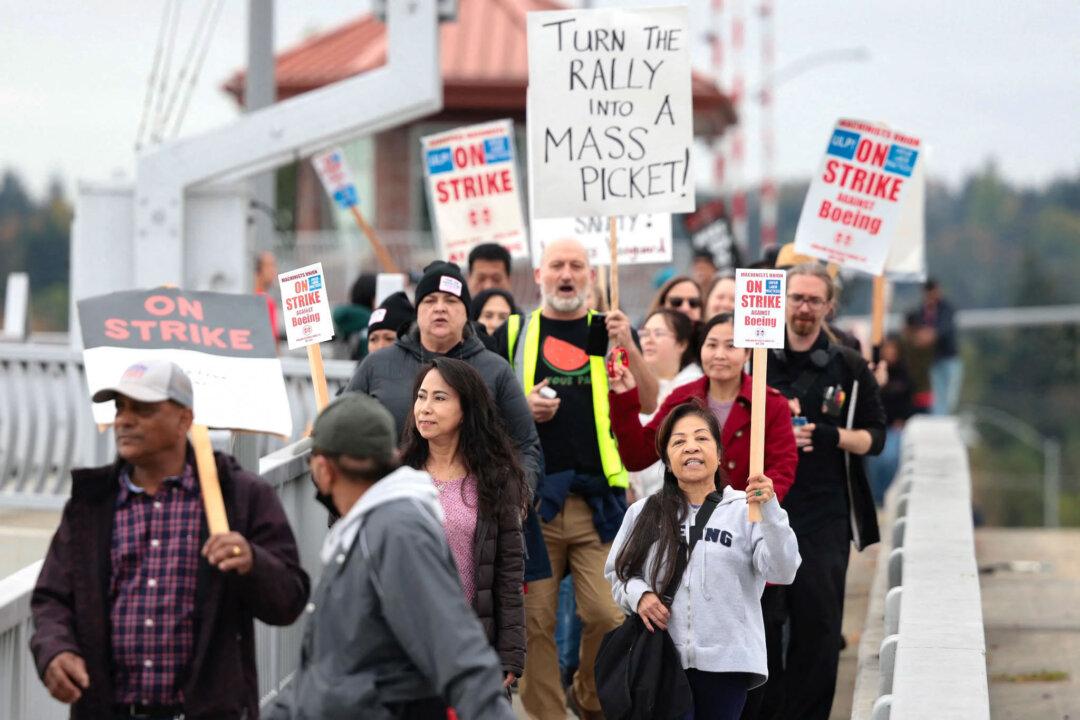Boeing and the union representing its striking machinists have reached a tentative agreement that union leaders say should be presented to members for a ratification vote, paving the way for a potential end to the more than month-long strike.
“With the help of Acting U.S. Secretary of Labor Julie Su, we have received a negotiated proposal and resolution to end the strike, and it warrants presenting to the members and is worthy of your consideration,” the International Association of Machinists and Aerospace Workers Local 751 said in a statement on Oct. 19.





